Track Premiere & Web-Exclusive Interview
Musician: ED ROMANOFF
Track Premiere: “Less Broken Now”
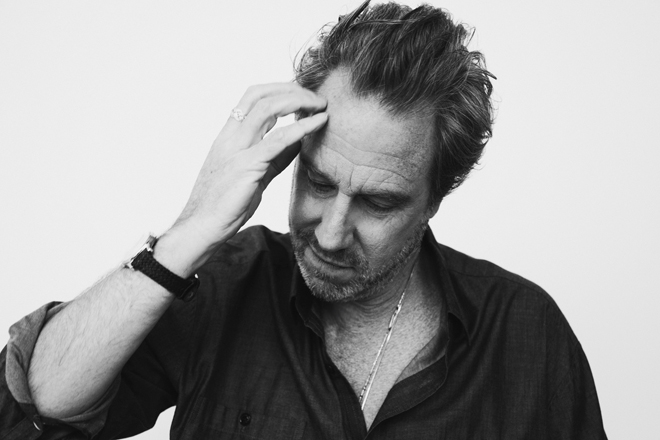
Photo credit Shervin Lainez
Ed Romanoff worked alongside producer Simone Felice (The Lumineers) to record his sophomore album The Orphan King at Felice’s barn studio just miles down the road in Palenville, NY. The pair corralled an impressive roster of collaborators to appear on the album including Romanoff’s longtime friend and touring mate Rachael Yamagata, Kenneth Pattengale of the Milk Carton Kids, guitarist Cindy Cashdollar (Bob Dylan’s Time Out of Mind), The E Street Band’s Cindy Mizelle and multi-instrumentalist Larry Campbell, along with Campbell’s wife and duo partner, Teresa Williams.
Based in Woodstock, NY, Romanoff’s backstory is pretty unique. He’s had a number of jobs—cattle branding in Wyoming, stacking toilets in North Carolina, bartending in Virginia, founding a production firm in New York City—all before beginning his music career in his 40s. His eleven song self-titled debut album was a Roots Radio Top 100 album in 2012, has been played in 13 countries and ranked as high as number 12 on the Euro Americana Chart. Produced by Crit Harmon, that album featured cameo vocal appearances from Josh Ritter, Tift Merritt and Meg Hutchinson.
Romanoff’s songs have won top awards at The International Songwriting Competition, USA Songwriting Competition, The Great American Song Contest and Nashville Songwriters Association International Competition. He was also a New Folk Winner at the Kerrville Folk Festival.
Mmusicmag.com is proud to present the track premiere “Less Broken Now.” We talked with Ed Romanoff about his passion for music, the twist of fate that inspired his new album, and some important lessons about life and music that he’s learned along the way.
ED ROMANOFF Web-Exclusive Interview
with M Music & Musicians magazine publisher, Merlin David
How did the new album The Orphan King evolve?
It started with a handful of songs about characters that struck me: The Elephant Man, Willie Sutton, and a ghost from Ireland who pinged me on Twitter. They became like planets that revolved around the main character, The Orphan King. I like outsiders because once you peel back their differences I think we find that everyone is the same in the end, and hopefully still believing in love.
How did the idea of “Less Broken Now” come to you?
It came from seeing how I’d been through so much with my family, learning that I was mistaken as to who my biological father was. There was depression, loneliness, and then after all of it, I’d met someone and am happy, but sometimes I do still cry. While I may still feel broken sometimes, I think I’m less broken than I was.
Tell us why you are especially glad “The Elephant Man” made it onto this album.
I’d written it differently—lyrically and musically, and the producer Simone Felice rejected it, Rick Rubin style. But I was really attached to the story. So, I rewrote it and found I liked the new version better, so I texted Simone, “The Elephant Man is making a comeback!”
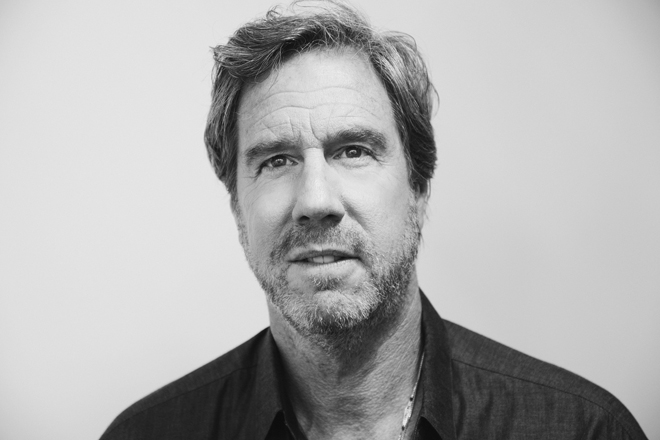
Photo Credit Shervin Lainez
Who inspired you to write songs?
John Prine and Josh Ritter. When I first heard a John Prine song, it flew through my ears and went directly to my heart. I really believe he’s among the gods in the realm of songwriting. Then, when I was older, I met Josh Ritter at a house concert and we became friends. That first night I played him some songs I had been thinking about working on—none of which have survived, but he told me some great insights about how to think about the songs.
When you started writing songs, what initially made you want to write?
To beat back a feeling of invisibility. I thought that if one word of mine made it into a song, or my voice was heard on the radio somewhere, it could make me somehow more real, or maybe justify my being in the world.
Is there a song of yours that encapsulates that feeling?
Probably “Orphan King”—both of my parents knew about my coming into this world—that my father wasn’t my biological father. I was bitter, but I still genuinely believe in love.
Tell us your creative process.
I like to listen for phrases that are a unique way of saying something very true—and universal. Once I have a phrase, then I pick up a guitar, or sit at a piano, and see how the words want to be sung. Or the opposite, I’ll start playing chords and see what words pop out. Both work for me. If you’ve never heard the Peter Gabriel 25th anniversary release of So, check it out. There’s the evolution of each song, which in those tunes started as basically gibberish. My process, I think, is idea first and then craft later, like a pendulum.
How has co-writing informed your music?
I’ve learned so much from the people I’ve written with. I’ve done some writing with Josh Ritter and Mary Gauthier, both serious heavyweights. What I learned from Josh was the idea of looking for a twist in a song—the surprise ending you didn’t see coming. He’s a master of that. Mary is the ultimate worker. She’ll do 80 drafts of one song—and then go back, line by line to see what lyrical upgrades are possible. That was a good lesson. It takes a ton of passes to make a song sound like it’s just rolled off your tongue. Unless you are Bob Dylan, which in his case, it does. (Laughs)
Is there one cowriter you truly connect with?
One of the best co-writers I know of, that I’ve also written with, is Crit Harmon—a writer/producer up in the Boston area (Martin Sexton, Lori McKenna). He’s big on POV and he’s super intuitive. I learned from him to let the process roll to you and not always force things. He’s the Zen master song man.
Tell us one experience where something unique inspired you to write a song.
“Miss Worby’s Ghost” was inspired from being at a writing retreat in Annaghmakerrig, Ireland, and I started getting direct messages on Twitter from the famous ghost who is supposed to be living there and haunting writers. She told me I better write her a song or else. That was enough for me. Maybe there are no such things as ghosts, but I wasn’t about to take that chance.
How do songwriting communities help you?
Kerrville is a magical experience. You’re camping and singing and everyone’s on the same team. There’s this great couple, Lindsey Lee and Deb Rouse. Every year they make everyone feel like they’re one, and they manage to keep everyone in touch over the years. Rocky Mountain Folks Fest is another great community. That’s where I followed country hit writer Steve Seskin around for days—absorbing everything I could from him. His writing seminars, where he breaks down Beatles songs and explains why they work, are among the best I’ve experienced.
What songwriting tip would you like to offer?
Two things: The first, I learned from a poet, Adrian Matejka—I scan every line, and if it’s not quickly visual, or an unusual way of saying a known philosophical truth, or really, really catchy wordplay, I get rid of it. The second, musically—trying melodies that begin at different counts within a measure send you to different places, like pushing paint around. Then you can decide which has the most emotion. Another thing is to try a song on a different instrument, switching from guitar to piano or vice versa, can help to find a cool feel sometimes.
Do you feel it’s important for musicians to write songs that have greater social value?
I almost canceled our sessions after the election. I was devastated, not so much about the party clashes, but what felt like the death of decency with a rekindled meanness, not to mention the possibility of increased instability in a nuclear world. Maybe I’m a snowflake, but I sure didn’t feel like doing music. But Simone was adamant about making music as our most important form of resistance. That led to the last song on the record, “Coronation Blues,” a song about a mad king who’s pissed that more people aren’t too keen on coming to his coronation. I was thinking a lot about Leonard Cohen at the time, he’d just passed away, and so I reached for a song like, “First We Take Manhattan.” Should everyone tackle songs with heavy social content? Well, I wouldn’t put that on any writer in a prescriptive way. Sometimes we need simple songs. But I do believe one song can change the world. All you need for evidence is “All You Need is Love.”
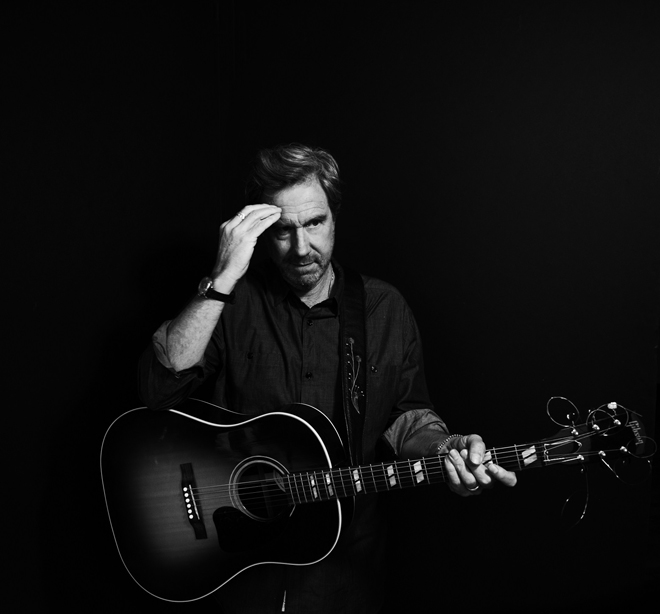
Photo Credit Shervin Lainez
Was there a specific moment when you realized you were meant to be a musician?
I always loved music, and as a kid I drew pictures of instruments. My parents discouraged me from playing. I wasn’t allowed to buy a guitar or touch my mother’s piano. I think looking back it’s because my biological father might have been a musician. When I turned 18, I bought a cheap Yamaha guitar, and have played almost every day. But, I didn’t pursue music seriously until I was in my 40s. I didn’t try to sing until I was much older. I believed I was tone deaf, as my father was. It was only after I learned that he wasn’t my father, when I was almost 50, that I thought maybe I should try to sing.
What instruments can you not live without?
I couldn’t survive without a guitar around. I love my Gibson Jumbo. The guitar was a little more technically demanding when I first got it, less forgiving than my Martins, but I really love it. I use Martin medium gauge strings on my Martin guitars. I was at 30th Street Guitars—which is the best guitar store with the best logo of any store. Matt Brewster at 30th Street helped me out when I was going on the road. They recommended John Pearse Strings for my Gibson, and that’s what I now use on my Gibson.
What other gear do you like?
I really love the PorchBoard stomp—that thing is light, and sounds like god stepping on a barn, absolutely fills a room. I use a Boss tuner. I like the old school Shubb capo. And my favorite capo—they give you a yellow Kyser when you win the Kerrville Festival, and I really love that one for sentimental reasons.
Do you remember the first time you heard one of your songs on the radio?
The first time a song I played and sang on was on the radio, I was having dinner in L.A. with a manager who worked with A-list musicians and a big-time music producer. Between them, they’ve probably sold 50 million records. So, I couldn’t tell them about my song playing somewhere in Minnesota. I was so proud though I went into the bathroom and cried. It was Mary Gauthier’s version of the “Orphan King” where I played the acoustic and sang harmony.
Top 5 Musicians who inspired you to become a musician?
John Prine, Josh Ritter, Mark Knopfler, Randy Newman, Roger Waters.
Top 5 favorite albums of all time?
Bruised Orange (1978) – John Prine
Oh Mercy (1989) – Bob Dylan
The Animal Years (2006) – Josh Ritter
The Assassination of Jesse James (2007) – Nick Cave and Warren Ellis
The Pros and Cons of Hitch Hiking (1984) – Roger Waters
Tell us a “pinch me” moment when you thought “Wow, this is really happening to me!”?
Performing “The South Wind Blows” (with Philip King) in Dublin on the RTE Radio 1 program. During the show I explained my DNA story, about having learned only recently I was Irish and not Russian as I’d always thought. He stopped the program, walked across the stage, and said, “Welcome Home, Ed. Welcome home to Ireland.” That was a pretty special moment. Also, singing with Josh Ritter in front of 5,000 people in Cork Ireland was pretty amazing. And having Larry Kirwan from Black 47 hear me in a pub in the East Village and then play my song on Sirius Radio was also pretty cool.
What PRO (Performing Rights Organization) are you with?
ASCAP. My rep at ASCAP, Sue Devine, put me in touch with several of the folks that had the most impact on me so far. Her insight as to who I’d gel with musically and personally made a huge difference.
How have Song Contests helped you?
When I was first starting out, which is not that long ago—having won a few contests gave me something to talk about. It also felt kind of legitimizing in my own mind that a song I wrote had somehow blindly bubbled up above thousands of other submissions. It was another one of those much-needed ‘keep going’ moments.
What is the best advice someone has given you?
I’m pretty nervous when it comes to performing. I’ve suffered from PTSD since I was 28, which is another reason why I waited so long to try it. When my vocal coach Dr. Bill Riley asked me why I was singing so quietly in his studio, I told him I was afraid someone might hear. He looked at me funny and said, “Ed, that’s the whole point.” As I was leaving that day, he stopped me and said, “You’ve got to give yourself permission to sing. No one else will.” I think that’s pretty good advice: Give yourself permission to do whatever the hell you wanna do.
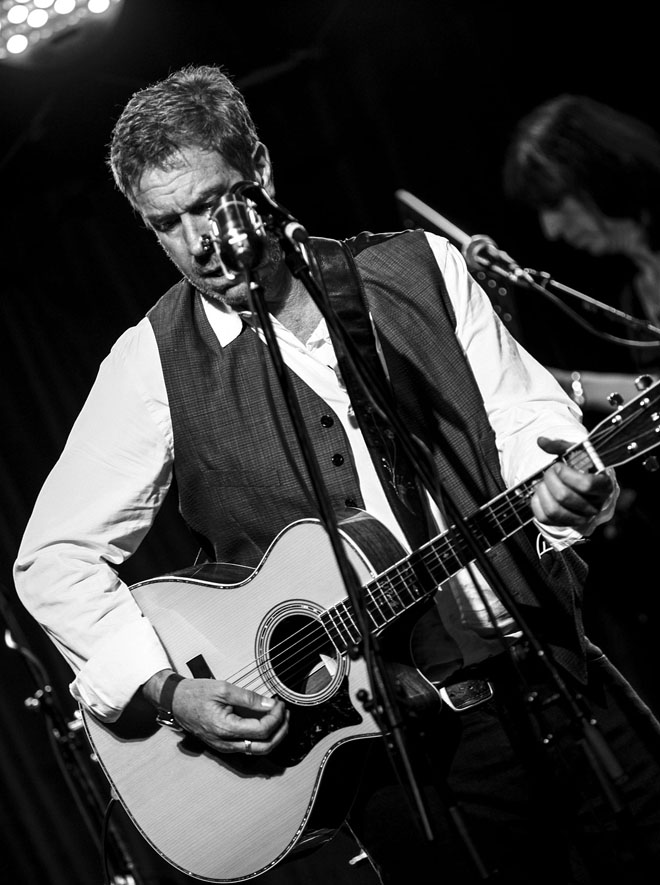
Ed Romanoff – Live in Ireland
Best advice you’d like to give upcoming musicians?
Talk to yourself as you would your best friend. Our self-talk can be so unforgiving. While we’d allow so much more grace for others than ourselves. So, I tell my younger self not to worry so much and think of life as a ride you can’t control—so you might as well enjoy it.
Any advice for songwriters?
However much energy you’re putting into the writing, it could be more. Go and try to write an undeniably great song. But, don’t expect to right out of the gate. I heard Rick Rubin on a podcast say you should just keep trying to write better than you did yesterday. Don’t try and top the Beatles in your first go ’round. Maybe someday, but take some of the pressure off to be the best in the world at every moment.
What’s an important lesson you learned from making music your business?
Don’t delegate your art or your business. It’s really important to take the reins of you work and finances, and to understand what deals you’re putting in place. If someone can’t explain to you why something is a good deal for you, then it probably isn’t. And, unless you’re Ingrid Michaelson, put down the ukulele.
What’s next?
I’m going to go and try to write a really great song.
Where can your new fans get more info and stay updated?
EdRomanoff.com
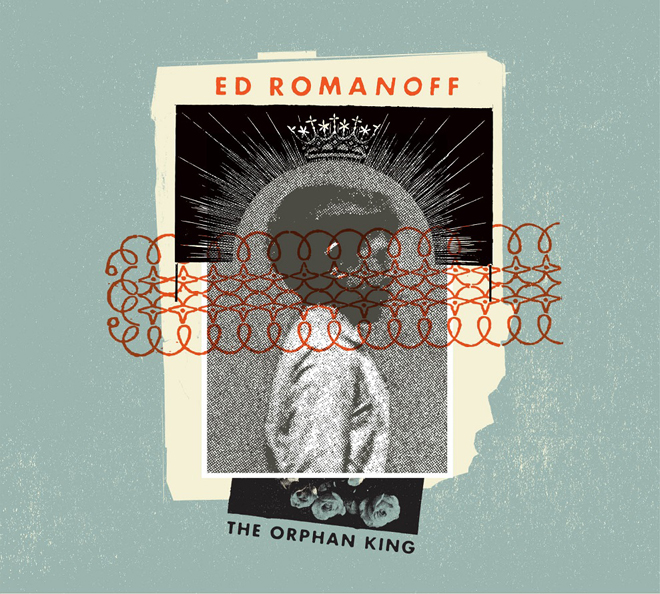



comment closed